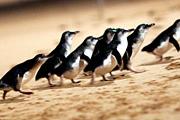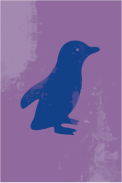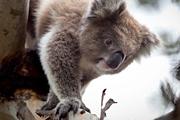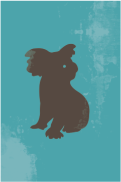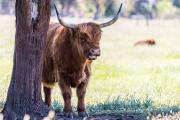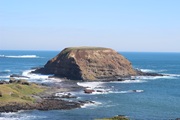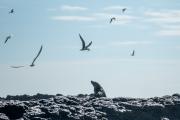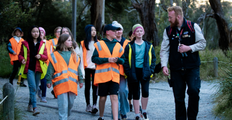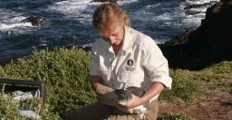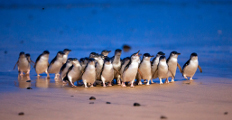Island community urged to ‘turn off for take off’ to protect Shearwater chicks
Phillip Island Nature Parks is calling on locals to “turn off for take off” as one million Short-tailed Shearwater birds prepare to embark on their 16,000km ‘maiden voyage’ to Alaska.
Bright manmade light sources can be a fatal attraction for the fledgling seabirds as they learn to fly for the first time. Many shearwaters are drawn to street lighting and land on
roads, presenting a danger to themselves and motorists. It is expected the young shearwaters’ departure date will coincide with strong winds in late April or early May, although the exact date of the migration is still unknown. In an effort to minimise casualties and fatalities of the chicks, Phillip Island Nature Parks has
partnered with Bass Coast Shire Council, Regional Roads Victoria, Ausnet Services, Bunurong Land Council Aboriginal Corporation, the Victorian Ornithological Research Group
and the local community as part of the Shearwater Rescue Program. Phillip Island Nature Parks conservation manager Jessica McKelson said a specialist team
was working to mitigate risks to the fledglings for their first flight; and called on locals to help eliminate unnatural light sources and take extra care on the roads during the departure time.
“We are asking residents and businesses in the bird flight path to switch off their lights for our campaign Dark Sky So Shearwaters Fly to give the young shearwater chicks the best
chance of a safe departure this year,” Ms McKelson said. Each year, Short-tailed Shearwaters migrate to Phillip Island to raise their chicks. In mid-
April, the adult seabirds start the journey back to the Northern Hemisphere, leaving behind their chicks to grow ‘adult’ feathers and begin their independent migration weeks later.
As they learn to fly, the shearwater chicks can be attracted to lights at night and land on roads causing a hazard for both the birds and motorists.
“This has been a particular issue with shearwaters flocking to the San Remo bridge lights, so AusNet will switch off the lights for 8-10 nights during the peak departure period,” Ms
McKelson said.
“We’re calling on locals in the bird flight path to join the cause and to switch off their lights to help protect these threatened migratory seabirds.”
In addition, AusNet has installed 50 specialty streetlights to help reduce unnatural light sources during the migration period. It comes as Phillip Island Nature Parks has significantly ramped up its efforts to protect the threatened migratory seabirds with the help of a grant from wildlife advocacy group, WIRES. The funding is allowing the team to provide habitat restoration, a strengthened rescue capability, enhanced data collection and community education for the shearwaters.
“Since the inception of the Shearwater Rescue Program in 1999, thousands of birds have been saved from harm as they learn to fly. Without a doubt, we could not have achieved this
incredible outcome without the help of the local community,” Ms McKelson said. “We look forward to more locals joining our campaign this year and ‘turning off for take off’ to
give the new brood the best chance of survival during their inaugural migration.”





